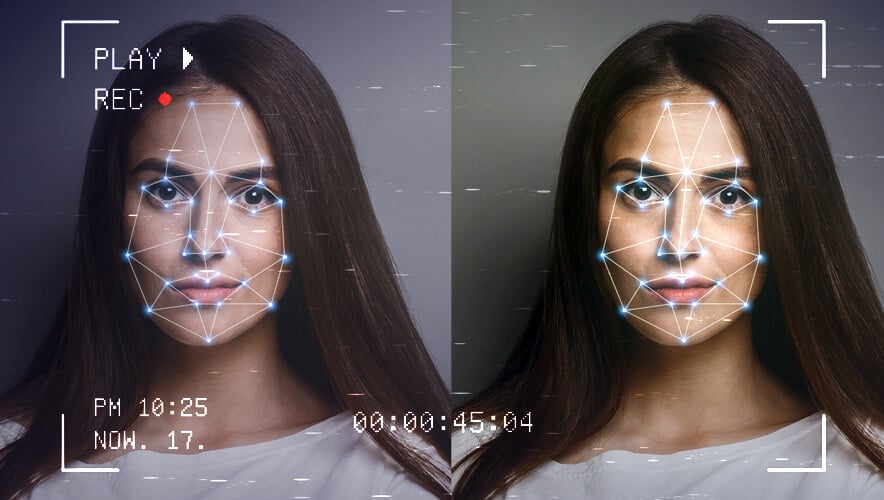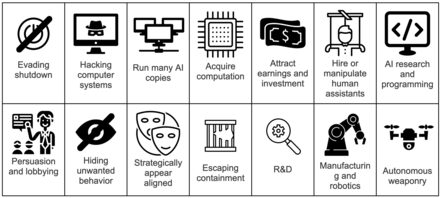The Double-Edged Sword: The Potential Perils of Artificial Intelligence
Artificial intelligence (AI) has emerged as a transformative force, shaping industries, powering innovation, and fundamentally altering how we interact with the world. However, as with any powerful tool, AI possesses a dark side, one that demands careful consideration and proactive mitigation strategies. In this vein, I, want to delve into the potential pitfalls of AI and urge a measured approach to its development and deployment.
One of the most concerning aspects of AI is its ability to generate deepfakes – highly realistic, AI-manipulated videos or audio recordings. These forgeries can be weaponized to spread misinformation and sow discord. Imagine a fabricated video of a political leader making inflammatory remarks, or a doctored recording influencing a critical business deal. Deepfakes erode trust in media, institutions, and even personal interactions. Another looming threat is the potential for AI-powered plagiarism. As AI becomes adept at mimicking writing styles, the boundaries between human-generated content and machine-produced text can blur. This could lead to a surge in plagiarized academic papers, marketing materials, and even creative works. The integrity of scholarship and artistic expression could be compromised if we fail to establish robust safeguards against AI-driven plagiarism.
Another looming threat is the potential for AI-powered plagiarism. As AI becomes adept at mimicking writing styles, the boundaries between human-generated content and machine-produced text can blur. This could lead to a surge in plagiarized academic papers, marketing materials, and even creative works. The integrity of scholarship and artistic expression could be compromised if we fail to establish robust safeguards against AI-driven plagiarism. The realm of privacy is another battleground where AI raises ethical concerns. As AI systems collect and analyze vast amounts of personal data, the potential for misuse becomes significant. Imagine a world where facial recognition software tracks your every move, or AI algorithms make discriminatory decisions based on biased data sets. The erosion of privacy and the entrenchment of algorithmic bias are real possibilities if we don't prioritize responsible AI development.
The realm of privacy is another battleground where AI raises ethical concerns. As AI systems collect and analyze vast amounts of personal data, the potential for misuse becomes significant. Imagine a world where facial recognition software tracks your every move, or AI algorithms make discriminatory decisions based on biased data sets. The erosion of privacy and the entrenchment of algorithmic bias are real possibilities if we don't prioritize responsible AI development.Perhaps the most disturbing potential application of AI lies in the realm of autonomous weapons. Imagine weaponized drones or robots programmed to make life-or-death decisions without human intervention. The ethical implications are staggering. The prospect of AI-powered arms races and the lowering of the threshold for armed conflict necessitates international collaboration to establish clear boundaries around the development and use of autonomous weapons.
Beyond these specific issues, a more general concern regarding AI is the potential for job displacement. As AI automates an increasing number of tasks, unemployment rates could rise. This could exacerbate economic inequality and social unrest. We must prepare for a future where humans and AI collaborate, ensuring that AI creates new opportunities and empowers, rather than replaces, the workforce. So, what can we do to mitigate these risks and ensure AI's development benefits all of humanity? Firstly, we need open and transparent dialogue about the ethical implications of AI. Scientists, policymakers, industry leaders, and the public must come together to establish clear guidelines and regulations.
So, what can we do to mitigate these risks and ensure AI's development benefits all of humanity? Firstly, we need open and transparent dialogue about the ethical implications of AI. Scientists, policymakers, industry leaders, and the public must come together to establish clear guidelines and regulations.
Secondly, we must prioritize the development of robust AI safety features. This includes building in safeguards against bias, ensuring transparency in decision-making algorithms, and establishing clear lines of accountability. Thirdly, we need to invest in education and skills training to prepare the workforce for a future reshaped by AI. The focus should be on fostering creativity, critical thinking, and problem-solving skills that will complement AI, not compete with it.
Thirdly, we need to invest in education and skills training to prepare the workforce for a future reshaped by AI. The focus should be on fostering creativity, critical thinking, and problem-solving skills that will complement AI, not compete with it.
Finally, international cooperation is paramount. The challenges and opportunities presented by AI are global in scope. We need a unified approach to ensure responsible development and deployment of this powerful technology.
In conclusion, AI holds immense potential to improve our lives. However, it's crucial to acknowledge and address the potential downsides. By fostering open dialogue, prioritizing safety, investing in education, and collaborating on a global scale, we can harness the power of AI for good and ensure a future where humans and machines work together for the betterment of all.





























































